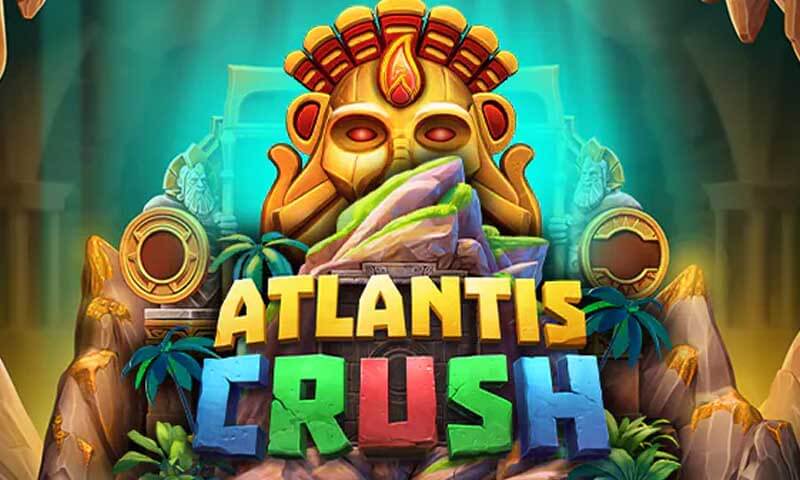The mystery of Atlantis Crush Slot has captivated audiences for generations. Legends tell us of a sunken city, rich with culture, advanced technology, and an enigmatic disappearance that has sparked countless theories. In this oceanic saga, we shall dive into the depths of history, mythology, and modern interpretations of the fabled Atlantis, exploring its implications on our understanding of civilization, history, and the human condition https://ok9st4b.com/.
The Legend of Atlantis: Origins and Atlantis Crush Slot
The tale of Atlantis begins with the philosopher Plato, who introduced the world to this magnificent civilization around 360 B.C. in his dialogues, “Timaeus” and “Critias.” Since then, the narrative surrounding Atlantis has evolved, merging with various cultures and historical events, leading to myriad interpretations.
The Foundational Stories
Plato depicts Atlantis as a powerful island nation situated beyond the Pillars of Hercules, which today are known as the Straits of Gibraltar. According to his accounts, the Atlanteans were skilled in commerce, engineering, and warfare. However, as they grew increasingly arrogant and power-hungry, they fell out of favor with the gods, resulting in their swift downfall.
This foundational myth serves several purposes. It highlights the consequences of hubris, warning humanity against the dangers of excessive pride and moral decay.
Many scholars argue that Plato’s account was not merely a tale but rather a cautionary parable aimed at the politics and society of his time. His portrayal of a once-great civilization serves as a reflection of his philosophical beliefs regarding the ideal state and governance.
Cultural Interpretations Over Time
As the legend of Atlantis spread throughout different cultures, it transformed significantly. Early Christians viewed it through a theological lens, considering it a symbol of moral decay and divine retribution.
In the Renaissance, the fascination with Atlantis surged, as it became synonymous with lost knowledge and hidden wisdom. Thinkers and writers like Francis Bacon and Sir Thomas More drew inspiration from the tale, intertwining it with their visions of a utopian future.
Fast forward to the 19th and 20th centuries, and Atlantis morphed into a zone of intrigue for archaeologists and adventurers. Numerous expeditions sought to uncover remnants of the lost city, often leading to more myths than facts. This period also saw the emergence of pseudoscientific theories linking Atlantis to extraterrestrial intervention or ancient advanced civilizations.
Modern Mythology and Media Influence
Today, Atlantis is both a cultural symbol and a source of endless speculation. From literature to movies and video games, the concept of Atlantis continues to inspire creativity. Games like “Assassin’s Creed” and films such as “Aquaman” explore the mythos in contemporary settings, blending it with modern narratives and character arcs.
The enduring fascination with Atlantis Crush Slot lies in its adaptability. It serves as a canvas upon which various ideas about civilization, morality, and the human experience can be painted.
In examining these transformations, we can understand how societal values shift over time. The story of Atlantis persists because it resonates deeply with humanity’s fears, hopes, and aspirations.
The Geographical Theories of Atlantis Crush Slot
The quest to pinpoint the location of Atlantis has led explorers, historians, and geographers to propose numerous theories regarding its geographical existence. These theories range from logical estimations to whimsical speculations, each offering varying degrees of credibility.
The Mediterranean Region
One of the most widely accepted theories places Atlantis in the Mediterranean Sea, particularly around the island of Santorini, also known as Thera. This theory posits that a catastrophic volcanic eruption around 1600 B.C. may have led to the destruction of an advanced Minoan civilization, mirroring Plato’s description of Atlantis.
Santorini reveals fascinating archaeological findings, including remnants of ancient frescoes, complex drainage systems, and sophisticated urban planning. Some researchers argue that these elements align closely with Plato’s depiction of Atlantis, suggesting that this island could indeed be a historical reference point.
However, while the Santorini hypothesis is compelling, it remains contentious. Critics argue that the archaeological evidence does not sufficiently support the idea that Thera was a direct inspiration for Atlantis. Instead, they contend that any similarities might stem from universal patterns in human development.
The Caribbean Connection
Another intriguing hypothesis suggests that Atlantis may have been located in the Caribbean. Proponents of this theory cite the presence of submerged structures off the coast of Cuba, claiming they could represent remnants of the fabled city.
While explorations have unearthed unusual formations resembling roads and buildings, skeptics remain unconvinced. Many scientists attribute these structures to natural geological formations rather than human intervention Atlantis Crush Slot
Yet, the allure of the Caribbean Atlantis theory cannot be understated. It conjures images of treasure-filled sea floors and hidden societies, feeding into the romantic notion of exploration and adventure that persists in popular culture.




